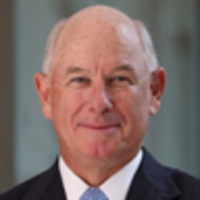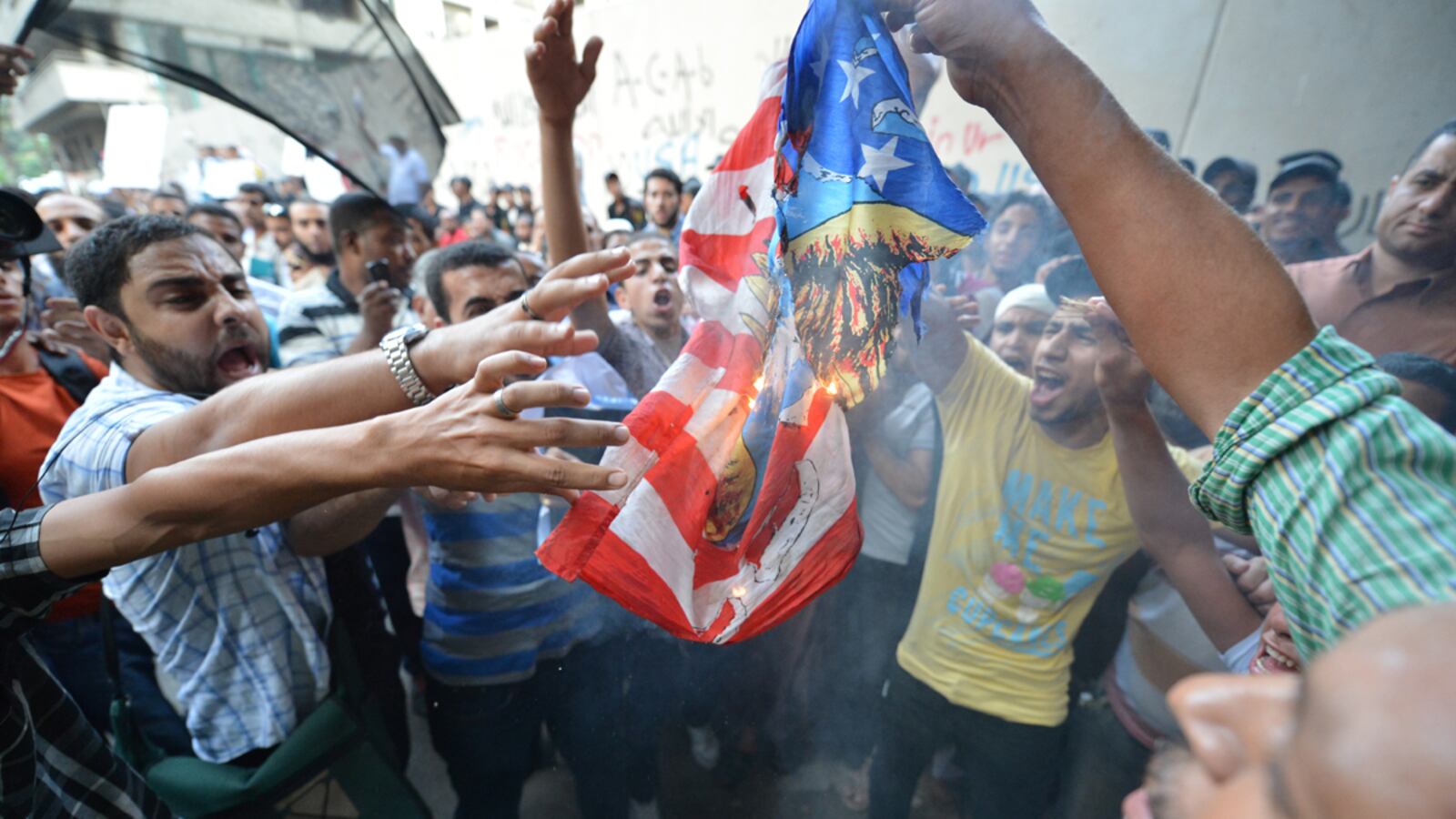If asked to identify the top three national-security issues the U.S. president will face over the next four years, most lists would include the challenges of Iran, the global economy and the Arab Awakening. The first two arguably represent a direct threat to long-term U.S. interests, but events this week in the Middle East and North Africa suggest that the Arab Awakening may be the most difficult to manage.
One of the challenges over the past almost two years has simply been to understand what is happening in the region, to keep up with events much less get ahead of them. The United States finds itself again in this uncomfortable situation in the aftermath of the tragic assault on the U.S. Consulate in Benghazi and dramatic protest at the U.S. Embassy in Cairo.
What happened and why? These are questions with clues, but not yet solid answers. As one senior administration official admitted in a briefing, “The facts could very well change as we get a better understanding.”
It’s possible a protest in Libya, ostensibly sparked by a mysterious and obscure YouTube video critical of Islam and the Prophet Muhammed, could be something more, a pre-planned and well-executed attack on a U.S. diplomatic mission by violent political extremists.
Then again, it may not.
There is fog in conflict, and its aftermath. This requires caution until there is clarity, a posture more evident on the policy front than the political campaign.
Even though Libya dropped from the headlines after the demise of Muammar Qaddafi in October and end of the NATO intervention, it has remained a dangerous and unpredictable place. The country was flooded with weapons during the civil war and every meaningful tribe, militia and political faction is heavily armed and jockeying for power. Both the interim and now duly elected governments have been challenged to get them under control.
From the outset of the Arab Spring, the U.S. government had concerns about the presence of dangerous elements in Libya directly linked to or at least sympathetic with al Qaeda. Whether they played any role in the attack is not yet known, but certainly possible given the sophistication of the assault on the consulate.
No one understood this challenge more than Ambassador Chris Stevens, who was killed in the attack, the first American ambassador slain in the line of duty since 1979. As Secretary of State Hillary Clinton said, he “gave his life trying to help build a better Libya.”
There is a sad irony to this. The State Department had pulled Stevens’ predecessor, Ambassador Gene Cretz, home for consultations even before the start of the Libyan civil war because of concerns for his safety after thousands of secret diplomatic cables were released by WikiLeaks. Many of Cretz’s depictions of the mercurial Qaddafi were candid, accurate and unflattering. The Embassy was evacuated and closed in February 2011 as the potential for civil war became clear.

Chris Stevens was one of a handful of Americans to return to Libya, to Benghazi, as the civil war broke out. He served as a liaison to the National Transitional Council, which eventually was able to overthrow Qaddafi and formed an interim government. He was subsequently nominated by President Obama to serve as U.S. ambassador to the newly elected Libyan government.
Was security at the Consulate adequate? In hindsight, the answer is obviously no. Guards were easily overwhelmed by heavily armed militants armed with rocket-propelled grenades.
But in balancing the imperatives for security and diplomacy, improvements in one come at the expense of the other. In a country like Libya, an ambassador with total security cannot do his or her job. Chris Stevens knew this, too.
Security is also the responsibility of the host nation. Here Libya was clearly challenged. It does not yet have an effective police force with the capacity and professionalism to adequately protect civil society, including the foreign diplomatic corps. It takes years to reform and grow security forces to protect rather than prey on civilians.
At one level, the attack in Libya is about U.S. policy in Libya, its support for democratic governance and its impact on Libya and the region. In trying to steer complex global developments in a constructive direction, the United States needs to balance interests and values. That is easier to say than do.
Notwithstanding barbs on the campaign trail, we can do two things at once: both standing up for the principle of freedom of expression while also understanding that words and images can have impacts that affect vital U.S. national interests and American lives.
But the Arab Awakening is less about how the U.S. responds to theses latest events and more about the future of the region and its relationship with a modern, secular and interconnected world.
Whatever the content of this obscure YouTube video–the Danish cartoons or burning of the Quran were far more dramatic, leaving the impression this could have been deliberately manipulated–it underscores how words and images can ricochet around the world in real time and have immediate and profound political impacts that are increasingly difficult to anticipate much less manage.
For Libya or others in the region, the solution cannot be either political violence or shutting down the Internet any time something objectionable is seen. The spread of protests to Yemen are not encouraging.
Afghanistan disconnected YouTube in the aftermath of the Libya tragedy, a dubious if understandable short-term solution. But this is hardly sustainable over the long term.
There are competing visions, one that reaches an accommodation with the modern world and the other that rejects it. How the region sees and responds to the tragedy in Libya will say a great deal about whether the Arab Awakening moves forward or backward.





